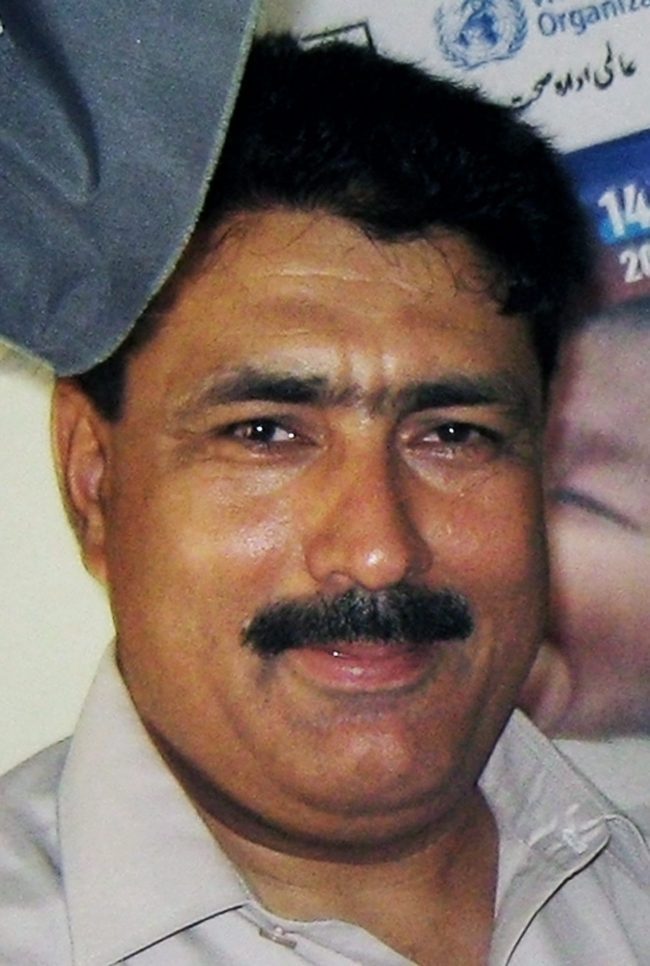A jailed Pakistani doctor believed to have helped the CIA hunt down al Qaeda leader Osama bin Laden will be neither released nor handed to the United States, Pakistan’s law minister has told legislators, media reported on Wednesday.

Dr. Shakil Afridi, hailed as a hero by U.S. officials, was arrested after U.S. forces killed bin Laden in May 2011 in a secret raid in a northern Pakistani town that plunged relations between the uneasy strategic partners to a new low.
READ MORE: Pakistani who helped US track down Osama bin Laden convicted, sentenced to 33 years
Pakistan has accused the doctor of running a fake vaccination campaign in which he collected DNA samples to help the U.S. Central Intelligence Agency (CIA) confirm bin Laden’s identity.
Afridi was arrested soon after the bin Laden raid and charged with having ties to militant Islamists, which he denied.
“The law is taking its course and Afridi is having full opportunity of a fair trial,” the Daily Times newspaper quoted Law Minister Zahid Hamid as telling the upper house, in response to a lawmaker’s query about reports of a possible release.

Get daily National news
READ MORE: Christmas message for prayer leads to death threats, police case in Pakistan
“Afridi worked against the law and our national interest, and the Pakistan government has repeatedly been telling the United States that under our law he committed a crime and was facing the law.”
- L.A. wildfires: U.S. asks Canada for resources as provinces send aid
- Ex-FBI informant who fabricated bribery story about Biden, son gets 6 years in prison
- How will Trump impose tariffs on Canada and others? His options, explained
- Los Angeles wildfires: Alberta plans to send water bombers, other resources to California
In 2012, Afridi was sentenced to 33 years in prison after being convicted of being a member of militant group Lashkar-e-Islam.
That conviction was overturned in 2013, but Afridi was then charged with murder, relating to the death of a patient eight years earlier. He remains in jail awaiting trial.
READ MORE: Pakistan issues nuclear warning to Israel on Twitter after fake news story
Many Pakistanis were infuriated by the U.S. raid to grab bin Laden in the military garrison town of Abbottabad, just a two-hour drive from Islamabad, the capital.
Pakistani officials describe bin Laden’s long presence in Abbottabad as a security lapse and reject any suggestion that members of the military or intelligence services were complicit in hiding him.
Last May, Pakistan’s foreign ministry angrily criticized U.S. President-elect Donald Trump for saying he could get Pakistan to free Afridi “within two minutes.”
READ MORE: Islamic State claims responsibility for deadly attack at Pakistan police academy
Pakistan joined the U.S. war on militancy after the September 11, 2001, attacks on the United States.
But U.S. officials often describe Islamabad as an unreliable partner that has sheltered the Afghan Taliban leadership and demand tougher action against militant groups based along its border with Afghanistan.







Comments